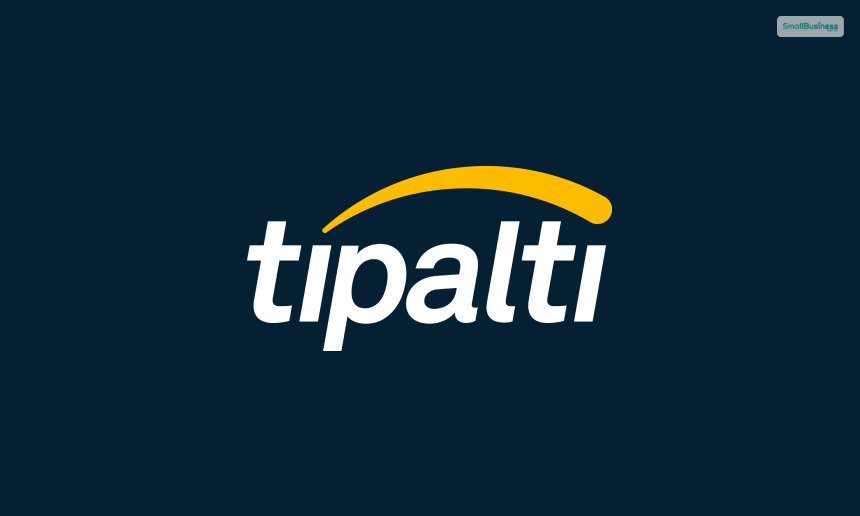For small enterprises, managing cash flow is critical to maintaining business stability and growth. In this context, payday loans often emerge as a viable financial tool. These loans, offered by various loan services, provide quick and instant cash solutions. They are particularly useful in balancing the ebb and flow of business finances.
Payday loans can be a convenient option for small business owners who need to bridge temporary cash flow gaps. It ensures their operations continue without disruption. However, while they offer immediate financial relief, it’s essential for businesses to clear understand terms and implications.
This blog explores the role of payday loans in managing cash flow for small enterprises. It delves into how one can utilize these financial services effectively and responsibly. We will examine payday loans’ benefits, risks, and strategic considerations. They help guide small business owners toward informed financial decision-making.
Understanding Payday Loans
Payday loans are a type of short-term borrowing primarily designed to offer quick financial relief. They are typically provided by loan services specializing in instant cash solutions for urgent needs. Characterized by their speed and accessibility, payday loans cater to those who require immediate funding. These loans mean access to funds within a short timeframe without the lengthy application processes associated with traditional loans.
However, it’s important to note that these loans usually come with high-interest rates and short repayment periods. The business owner repays the amount that they borrow is generally. Hence the name. While they provide a rapid injection of cash, the cost and quick repayment terms are critical factors to consider. Understanding these aspects is essential for any small enterprise looking to use payday loans. They use them as tool for managing financial exigencies.
The Significance Of Cash Flow In Small Businesses
Cash flow is the lifeblood of any small business, crucial for sustaining operations and fostering growth.
It represents the amount of cash coming in and going out of a business. It impacts its ability to meet obligations, invest in new opportunities, and navigate financial challenges. Effective cash flow management ensures that a business has enough cash at hand to cover its expenses. They include payroll, rent, and inventory purchases, which are vital for day-to-day operations.
For small businesses, managing cash flow can often be a juggling act. It is quite juggling, especially when dealing with delayed client payments or seasonal sales fluctuations. These scenarios can lead to cash flow gaps where the outflow of cash temporarily exceeds the inflow. Such situations are particularly challenging for small enterprises, as they might not have the same financial buffers as larger companies.
A healthy cash flow is not just about having enough money; it’s about timing. Even profitable businesses can face difficulties if their cash is not readily accessible when needed. This is where external funding sources, like payday loans, can play a role. They can provide a quick cash injection to bridge short-term gaps, helping businesses stay afloat and maintain momentum. However, it’s important for businesses to use payday loans judiciously. Given their high interest rates and fees, one must consider it a temporary solution. One must not limit them to strategy for cash flow management.. Balancing immediate cash needs with sustainable financial practices is key to a small business’s success.
How Payday Loans Can Aid Cash Flow Management
In the realm of small business, payday loans can serve as a strategic tool for managing cash flow challenges. These loans are particularly useful when one needs immediate cash to bridge short-term financial gaps. For instance, a small business experiences a sudden drop in sales or a delay in payments from clients. This can lead to a cash crunch. Payday loans, are known for their quick processing and instant cash provision. They fill this void, ensuring that the business continues its operations without interruption.
One of the key advantages of payday loans in cash flow management is their speed of disbursement. Payday loans from loan services help quick access. They are not like the traditional loans from banks, which involves lengthy approval processes. This rapid turnaround are crucial when expenses must meet immediately. Example includes emergency repairs, restocking inventory, or meeting payroll obligations.
Additionally, the flexibility of payday loans is beneficial for small businesses that face unpredictable cash flow patterns. Since these loans are typically short-term, businesses can use them to get through a rough patch. Thereafter, they repay them as soon as their cash flow stabilizes.
However, it’s important for businesses to use payday loans judiciously. Given their high-interest rates and fees, one must consider it a temporary solution. One must not limit them to strategy for cash flow management.
Small business owners must carefully assess their ability to repay the loan on time. This helps them avoid falling into a cycle of debt. When used wisely and sparingly, payday loans can be a useful mechanism to navigate temporary cash flow disruptions.
Risks And Downsides Of Using Payday Loans
While payday loans offer immediate financial relief and can aid in managing short-term cash flow issues for small businesses, they come with significant risks and downsides that must be carefully considered.
- High-Interest Rates and Fees: The most prominent risk associated with payday loans is their exceptionally high-interest rates and fees. These costs can quickly escalate, making the total amount to be repaid substantially more than the original borrowed sum. For a small business, this means a larger portion of future revenue will be allocated to servicing debt, potentially leading to further cash flow challenges.
- Short Repayment Terms: Payday loans typically require repayment within a short timeframe, often by the next paycheck or within a few weeks. This short repayment period can be challenging for small businesses, especially if their incoming cash flow is unpredictable or if the anticipated revenue does not materialize as expected.
- Risk of Debt Cycle: If a business is unable to repay the loan by the due date, it may resort to taking out additional loans to cover the first, leading to a cycle of debt. This cycle can be detrimental to the financial stability of a small business, trapping it in a continuous loop of borrowing and repayment.
- Impact on Credit Score: While not all payday loan services report to credit bureaus, failing to repay a loan can still have a negative impact on a business’s credit score. A lower credit score can affect future borrowing capability, potentially leading to higher interest rates and reduced access to more traditional forms of credit.
- Potential for Unethical Lending Practices: The payday loan industry has been criticized for certain predatory practices, such as unclear terms and conditions or hidden fees. Small businesses must be vigilant in choosing reputable loan services to avoid falling victim to such unethical practices.
While payday loans can provide a quick fix in times of financial need, the high costs, short repayment terms, risk of debt cycles, potential credit score impact, and the possibility of unethical lending practices make them a risky choice. It’s crucial for small business owners to weigh these risks against the immediate benefit of quick cash and consider alternative funding options that may be more sustainable in the long run.
Alternatives To Payday Loans For Cash Flow Management
Small businesses seeking cash flow solutions have alternatives to payday loans that offer more favorable terms.
- Business Lines of Credit: These provide a revolving credit line that can be drawn upon as needed, with interest paid only on the borrowed amount.
- Small Business Loans: Traditional loans from banks or credit unions often offer lower interest rates and longer repayment terms, suitable for more extended cash flow challenges.
- Invoice Financing: Businesses can sell their unpaid invoices to a lender for an immediate cash advance, helping bridge gaps caused by delayed payments.
- Merchant Cash Advances: These provide quick cash based on future credit card sales, with repayments tied to daily card transactions.
- Emergency Savings: Building an emergency fund for unexpected expenses is a prudent long-term strategy for cash flow stability.
Exploring these alternatives can lead to more cost-effective and less risky solutions for managing cash flow challenges. Small businesses should carefully assess their specific needs and financial health before selecting the most suitable option.
Conclusion
In the realm of small business cash flow management, payday loans, while offering immediate relief, come with significant caveats. The risks of high-interest rates, short repayment terms, potential debt cycles, and the impact on credit scores must not be underestimated. As such, these loans should be used sparingly and strategically, only in situations where no better alternative exists.
Exploring alternative funding options, such as business lines of credit, traditional small business loans, invoice financing, or even building an emergency savings fund, can offer more sustainable and less risky approaches to managing cash flow challenges. Small business owners should prioritize long-term financial health and consider payday loans as a last resort rather than a go-to solution.
Read Also:




Leave A Comment